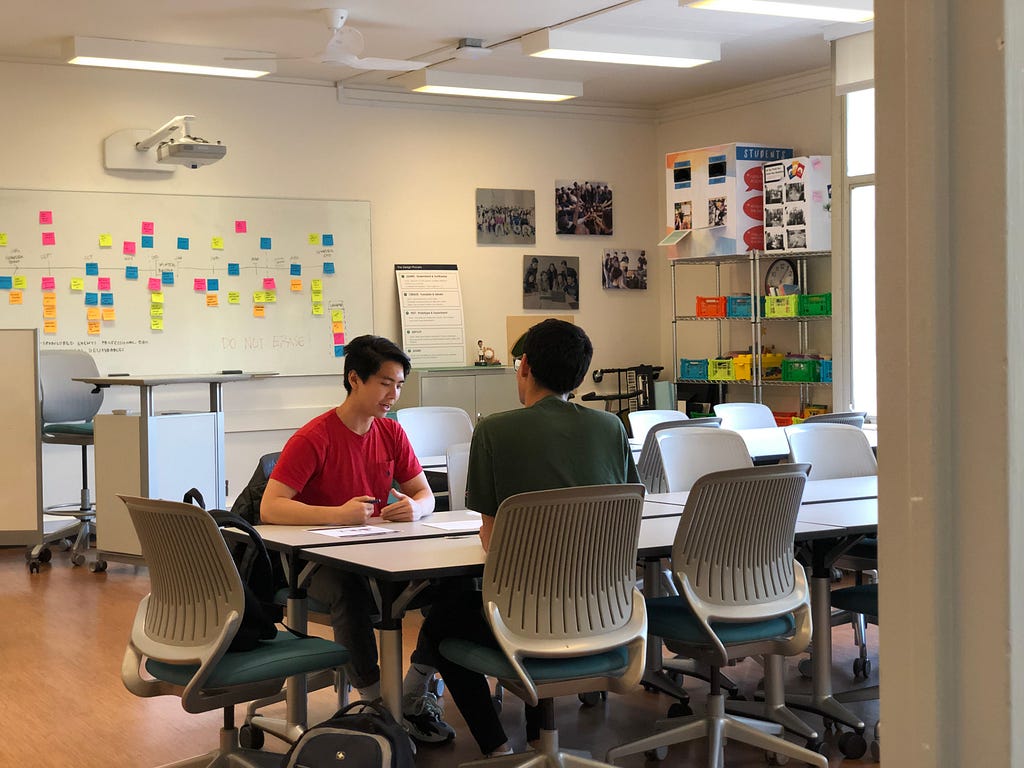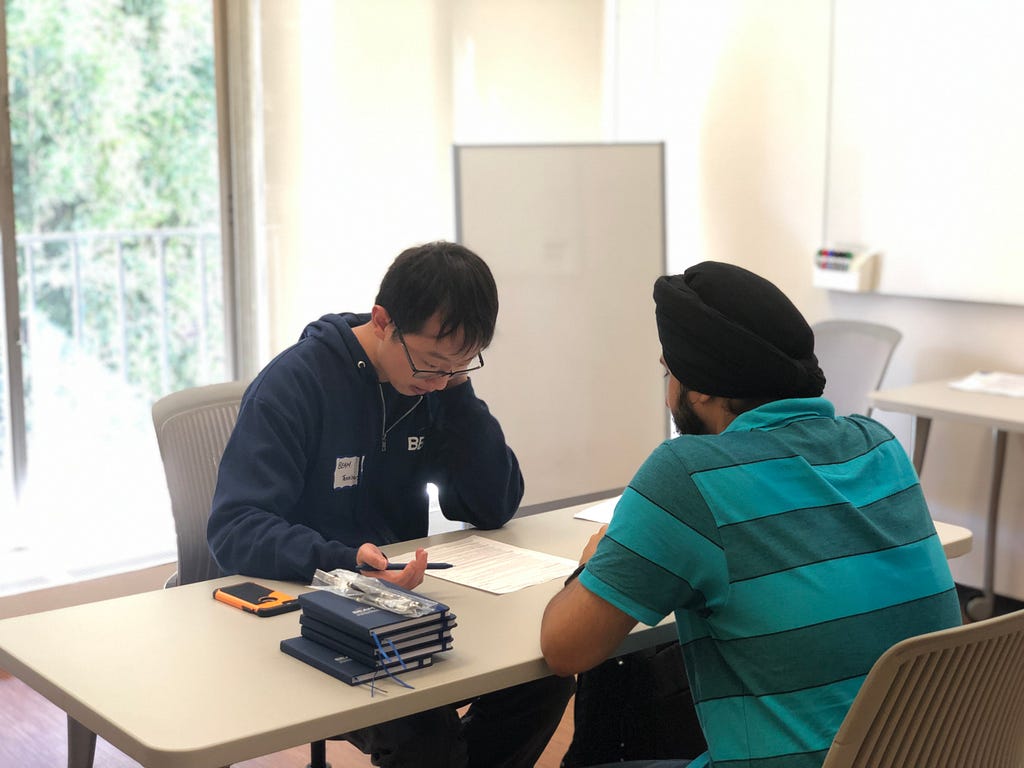Edited by Anna Liang
Kevin Feng, MEng ’18 (IEOR), Tennison Yu, and Liying Li from Beam Solutions sit down to talk to us about their unique career paths in data and where they think the industry is headed in the near future.
Kevin Feng, Head of Data Science
You pivoted from a background in oil and gas to data science. How did the MEng program help you pivot in your career?
“The MEng program provides a lot of opportunity to gain different technical and business skills. I came from a consulting background, so I was more focused on taking as many technical courses as possible, but the boot camps, business courses, and advising sessions are very helpful as well. I really liked that the program is flexible enough for you to take the courses that best help you achieve your personal career goals, whether they be in different engineering departments, MBA courses, etc- as well as providing great networking and job searching opportunities.How do you think data science will evolve in the near future?
Like everyone, I’m definitely looking forward to cutting edge advancements in data science — autonomous vehicles, AI robots, Amazon Alexa finally telling me the temperature on the first try instead of playing “Temperature” by Sean Paul on Spotify. In Alexa’s defense, it’s a solid 2005 throwback. More seriously, I’m also really excited about the increased adoption of data science on the not-so-cutting-edge (dull-edge?) of the spectrum. Management consultants and analysts that previously worked in Excel are already starting to pick up Python and ML packages for more robust analysis. As everyone becomes more familiar with big data and AI capabilities, I think there will be huge strides in both data-driven analysis and data ethics.What advice do you have for the next generation of data scientists? What skills should they focus on learning in grad school?
A couple years ago I probably would’ve said that technical skills and tools are the most important things to focus on, but the rise of easy-access data science courses and open source tools has changed the landscape. Technical data skills are becoming less of a differentiator and more of a baseline requirement (especially for entry-level positions). It’s critical for data scientists to have some level of interpersonal skills and business understanding to know how/what they can do to leverage their skills into real value. It’s easy to underestimate soft skills, but the reality is that building those skills is the same as building technical skills. You need to practice interviewing, networking, doing case studies, etc. (all which are abundant in opportunity at Berkeley) to get better at those things. I would advise taking advantage of those opportunities and viewing them as just as valuable as your core courses. If you can write an AI language bot from scratch and also talk like one, skip some classes and join a club.Now, more than ever, it’s critical for data scientists to have some level of interpersonal skills and business understanding to know how/what they can do to leverage their skills into real value.
You have a fun data science related Instagram account! What inspired these visualizations?
I like joking around and data science, so my Instagram is for joking around with data science. Public data is available everywhere. Sometimes you’ll think ‘hm, Joe Rogan seems to mention chimpanzees a lot during his podcast’ and visualize the data and realize that Joe Rogan’s podcast is exclusively the word chimpanzee surrounded by different verbs and adjectives.”
Tennison Yu, Data Scientist
What interests you and/or your company in working with MEng students?
“MEng students are some of the most well equipped to handle the modern challenges faced in industry. We have worked closely with IEOR students in particular and they have displayed a deep knowledge base, a willingness to learn and be creative whilst maintaining a high standard of professionalism, focus, and light-heartedness.What is your vision for data science in next 5–10 years?
Data science is still a rapidly evolving field. With computing and access expected to grow at an exponential rate, I’m expecting growth in all 3 Vs of data science: velocity, volume, and variety. Advancements in both hardware and software will be a cornerstone of handling this expansion. We are already seeing it with new graphic and accelerator chips tailor made for new forms of neural network algorithms.What advice do you have for the next generation of engineers? What skills should they focus on learning in grad school?
The next generation of engineers need to be riding the wave when it comes to new technology. They need to know the best practices when it comes to working with super big data both from a hardware and software perspective. Equally important is to know how to communicate data and the ethics behind different analyses. As more and more personal data becomes available or can be inferred, it is important to keep in mind a data set's origins and its inherent biases.”Liying Li, Data Scientist
What inspired you to study data science?
“I studied Economics and Finance when I was a bachelor student. After I acquired my Bachelor’s Degree in Economics, I felt that what I learned about Economics and Finance was not something very concrete, so I decided to get into a more technical area — Data Science. This major is a great pivot for people like me with a non-technical background who want to get into the technology industry. The learning and working environment in the Bay Area is also great for people who want to pursue their technical dreams. Data Science covers everything about data. It gives me the possibility to explore different industries and different roles in data. In my first role as a data scientist, I perform a combination of tasks ranging from a data engineer to a data scientist to a data analyst, and I can deal with data in a wide range of companies and institutions. The potential of my role itself attracts me most.Where do you see the industry heading?
As I mentioned above, where there is data, there is data science. This industry is an emerging industry with the development of modern information technology. I would believe that data science would cover more fields and contributes more to traditional industries. In those cases, people with various and compound background would become necessary and would be better data scientists. They can apply their industry knowledge to reality with the tool of data science, while data science would help to solve the problems that they couldn’t resolve only with industry knowledge or experience.What excites you about being a woman in data science?
As a new graduate without working experience, I didn’t think much about how my gender affects my professional data scientist as a data scientist. Recently, I finished reading Sheryl Sandberg’s Lean In and realized there are still many obstacles professionally for women. I realize that as a professional woman, I could and I should pursue more possibilities and seize the opportunities presented to me. At this point, a data scientist is not only a job title for me, but it also makes me feel that I have taken more responsibilities and become more motivated to go further in this role.” Connect with Kevin, Tennison, and Liying.Industry Office Hours with Beam Solutions: A conversation with three data scientists was originally published in Berkeley Master of Engineering on Medium, where people are continuing the conversation by highlighting and responding to this story.

